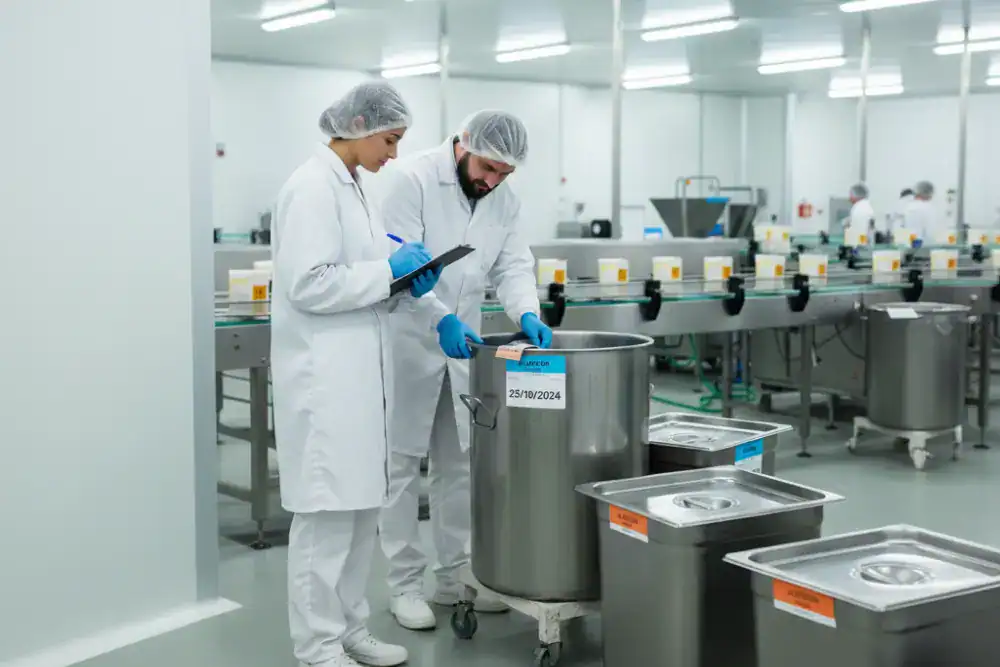
Small businesses must follow food safety laws to guarantee the products they serve, sell, or supply are safe to eat. But avoiding legal trouble shouldn’t be the only motivating factor for compliance. Your customers’ health is at risk and nothing kills consumer trust faster than an outbreak of foodborne illness.
You must establish and maintain an effective food safety management system. This guide summarises advice from the Food Standards Agency (FSA) and your statutory duties regarding food safety.
The Importance of Food Safety
You can’t overstate the importance of food safety for your business. The FSA estimates that there are around 2.4 million cases of foodborne illness in the UK each year. Most people recover fully, but for a fraction, foodborne illness can be fatal. Research suggests unsafe food kills approximately 180 people per year.
Foodborne pathogens are not the only risk to consumers. Mislabelling or mistakenly serving known allergens is also dangerous. While fatal reactions are rare (there have only been 187 recorded cases in total since 1992), there are still two million people living with a food allergy in the UK. That’s a lot of potential customers at risk if you allow cross-contamination in your kitchen.
While your customers will almost always recover from a foodborne illness or an allergic reaction, you can’t say the same for your business. Consumers who lose confidence in your food will not be coming back.
Food Hygiene Courses
Equip food workers with essential training for their role. Our online food hygiene courses provide an understanding of food safety, HACCP systems and cross-contamination. All courses award independently recognised certificates for proof of training.
Your Food Safety Duties
Your primary duty is to guarantee food safety. Other duties support this overall goal, which can be broken down into three categories:
- Preserving food integrity for the entire time it’s handled by your business
- Being honest about food quality and ingredients so consumers can make safe choices for their dietary needs
- Maintaining good standards of hygiene across your operations

Hygiene can only be guaranteed if you follow the principles of Hazard Analysis and Critical Control Points (HACCP). The FSA developed HAACP, and the agency expects to implement it in every food-related business.
HACCP Systems
You must follow the HACCP system to create food safety procedures for your business. The steps to this are:
- Looking at your business and its food safety hazards and risks
- Identifying the critical control points where you can eliminate or reduce those risks to a safe level
- Planning what you’ll do if something goes wrong
- Checking safety procedures are adequate and being followed
- Keeping records that prove safety procedures are working
After working through these steps, you should have a credible food safety management system. It should also be appropriate for your business, so the FSA expects you to design procedures based on HACCP.
The FSA acknowledges that not all hazards can be eliminated, which is why they use the term ‘control point’. It’s also referred to as a point because certain hazards require more than one control measure.
Different Hazards
While your procedures may differ from those of other businesses, they should address the three primary food safety hazards. These hazards are:
- Microbiological – harmful pathogens that cause illness
- Chemical – contamination of substances unfit for consumption
- Physical – objects or substances in food that cause bodily harm
Allergens
Some industry figures consider allergens a fourth food hazard. The FSA disagrees, however. In official guidance, it groups allergens under chemical hazards.
Regardless of how allergens are categorised, regulations are consistent. You must:
- Manage the risk of cross-contamination in your business
- Inform customers if your food products contain listed allergens
The FSA recognises 14 listed allergens as particularly hazardous. Although customers can be sensitive to any ingredient, you only need to tell them if your products contain one or more of the 14 listed allergens.
Food Contact Materials
You must also plan how you’ll safely use food contact materials – the materials that food will touch in your business, including:
- Packaging
- Kitchen surfaces
- Utensils and cookware
Using different utensils and surfaces for different foods helps prevent cross-contamination and is industry standard. Almost all professional kitchens use separate colour-coded chopping boards, for example.
Reporting an Incident
You must also report any actual or suspected food safety incidents to your local authority and the FSA. Reports can be made directly to the FSA online or over the phone.
The FSA will ask for key information, including:
- The nature of the incident
- How you plan to respond
- Details of the affected products
- Any other businesses (suppliers, distributors, etc) involved
Don’t hesitate to report an incident if you don’t have all this information yet. Acting quickly is in the best interests of your business and your customers, and you can follow up on your initial report as facts become known.
Food Safety Inspections
The FSA partners with local authorities to monitor and enforce food safety standards in businesses. Food safety inspections are a critical part of this enforcement. Your business may be subject to one at any reasonable time without notice. Unsurprisingly, most inspections happen unannounced.
During an inspection, food safety officers will need to check:
- Your food safety management system, including its compliance with HACCP principles
- The hygiene and condition of your premises, including suitable ventilation and lighting
- Procedures for food handling, preparation and storage
You can expect an inspection at least every six months. Inspections will be more frequent if your business is considered a higher risk. Risk levels are determined by the nature of your business and the food it sells. So expect inspections more often if you sell uncooked or unpackaged foods.
Food Safety Training
Staff must be given appropriate training before working in your kitchen. It’s up to you to provide this training. Training can be on the job, but most small businesses find it easier to use ready-made programmes that cover food safety and hygiene essentials.
Our online food hygiene courses include programmes on handling known allergens and overall best practice. Staff will understand how to handle food safely and avoid common health risks, making compliance with your food safety system practically automatic. They’ll also learn how to prevent cross-contamination and confidently serve any of the UK’s two million food allergy sufferers.





















